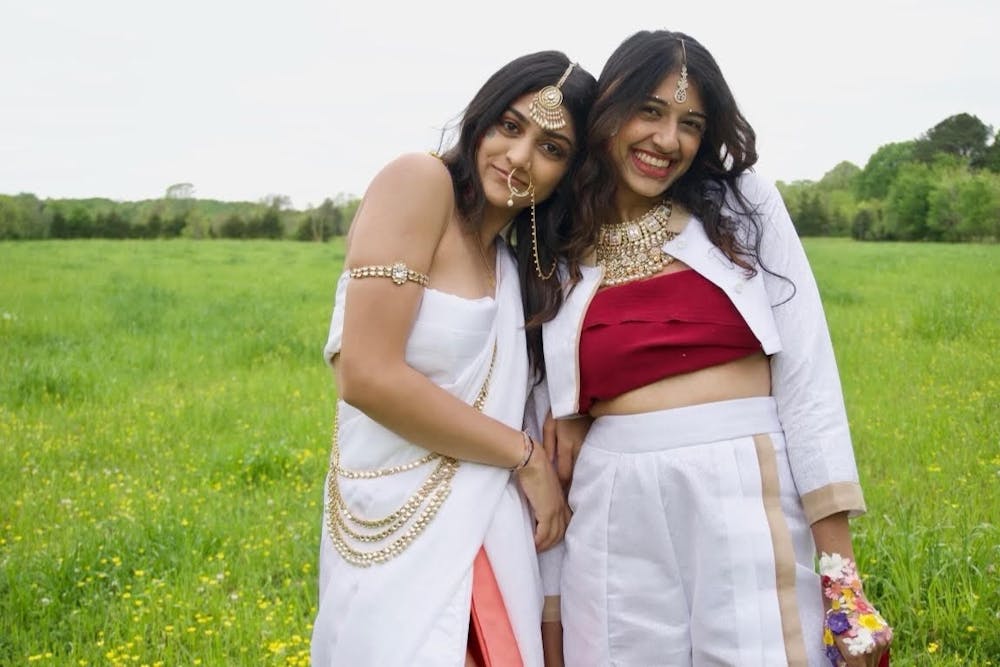On WE ARE SAATH's Instagram page is a photo of a woman dressed in black standing with her hands around her neck, as if holding herself back from speaking. The caption below her reads: “Stop being dramatic."
The post, published Thursday afternoon, is the first in a 12-part series that aims to start a conversation on stigmas surrounding mental health in the South Asian community.
The photo series was created by student-run group WE ARE SAATH at UNC and features teams of models, photographers and makeup artists who came together to show different ways young people experience mental health issues — as they are often misunderstood by older generations.
“They seem to think that mental health is this Western idea,” Creative Chair Pareen Bhagat said. "We thought to give them a different perspective would be to maybe try and show it through a lens that has not been used before, which is fashion."
How the show began
The idea for the project came to be in a MEJO 121: Intro to Digital Storytelling class, when Bhagat featured President Hrishika Muthukrishnan in an assignment that focused on mental health in South Asian communities.
“Hrishika had put it, in one of the videos I’d done, really well,” Bhagat said. "You go to a doctor for a broken leg or something, so why wouldn’t you go to the doctor if you’re having mental issues?"
After the class project, Bhagat joined WE ARE SAATH and the two decided to collaborate on a fashion show centered on stigmas surrounding mental health.
But, almost immediately, they encountered obstacles.



